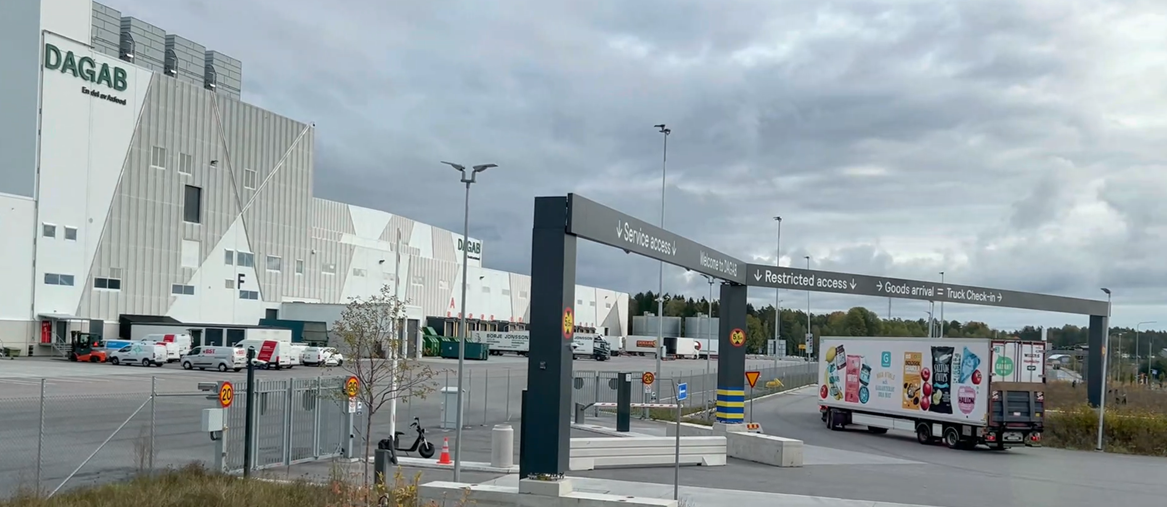Dagab is a food retail company operating in Sweden. As part of Axfood, it is responsible for the group’s assortment, purchasing, warehousing and distribution. Dagab ensures sustainable and efficient product supply to store chains such as Willys and Hemköp but also to e-commerce customers. The new logistics center is equipped with five horizontal balers to cope with the streams of cardboard packaging.
A big Dagab logistics center was recently built in Bålsta, north of Stockholm, as part of Axfood’s new logistics solution for Sweden. This warehouse primarily serves 60 % of the country’s surface area, but for some low frequent parts even the whole country.
The size of 10 football fields
The center is about the same size as 10 football fields. In other words, the area on the ground floor is about 100 000 sqm. The ceiling height in the highest part reaches 30 m and in the rest of the building 26 m.
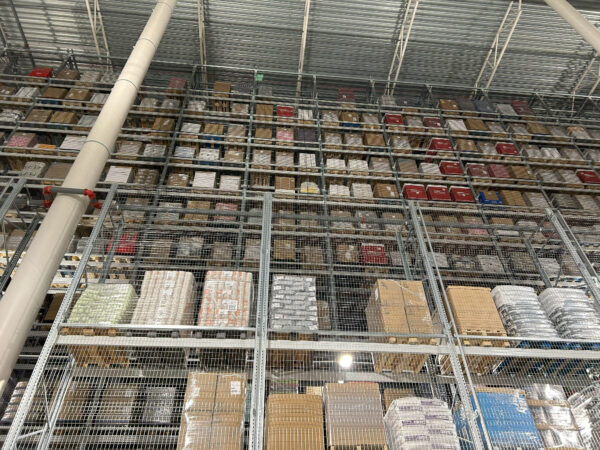
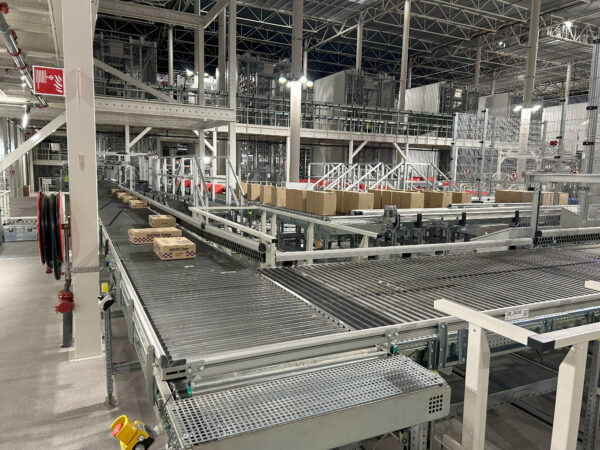
Delivers to stores and e-commerce
It stores a full range stock of groceries and all temp zones are represented. There are two zones for dry goods, two cold storages and a zone for frozen foods. To supply the stores and the e-commerce customers with the right quantities, the goods must be repacked in smaller batches for retailers and in consumer packaging.
The vast volumes are the main challenge
The main type of packaging waste is no doubt cardboard but also various types of plastics. Johan Rösler, project manager for the new center comments: “The big challenge of managing those vast waste streams in a logistics facility of this size is the internal logistics in the building; to handle and transport the waste that is generated in the operations here.”
Five strategically located balers
Dagab has chosen two different waste solutions; indoor horizontal balers for cardboard compaction and outdoor compactors for other waste fractions such as specific types of plastic, wood and organic waste.
The five horizontal balers are strategically located, one in each temp zone, and they are fed by conveyors and chutes through the ceiling from the unpacking stations on the floors above. The balers are automated and they compact and bale the packaging waste in pallet size. It is a mix of the models ORWAK HORIZONTAL 500 AT and 500 S AT depending on the needs and volumes in each zone. Dagab has partners who collect the bales and the material is recycled. Johan Rösler: “The balers are part of Axfood’s important sustainability work.”
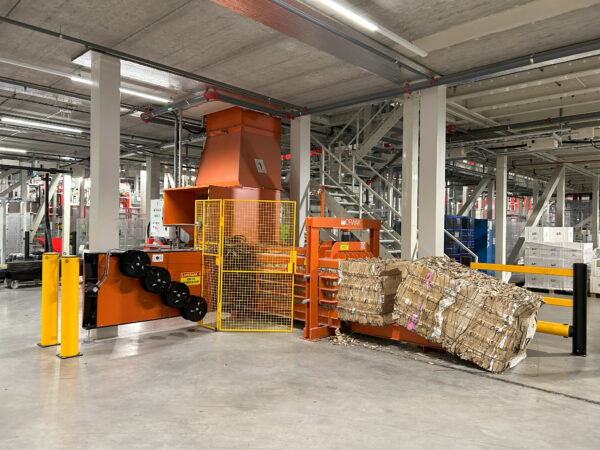
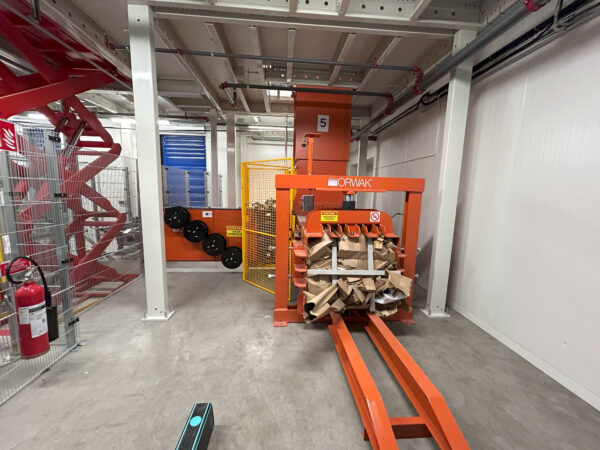
High degree of automation
The automated areas of the system, where a lot of waste is generated, were a big challenge in the design phase of the construction project. Johan Rösler comments: “We had to find a smart solution to integrate the waste handling in the existing automated processes.”
In projects of this magnitude, it is important to think about the internal processes for material and waste handling early in the process and that was a fact with ATS-Orwak, Orwak’s sister company and representative in Sweden, in this case. Johan Rösler: “Considering the conditions on site, the high degree of automation, and the big volumes of packaging waste, we determined that this is the best solution.”
To be the best in the industry – in sustainability
For Dagab it was important to optimize logistics, minimize internal transports and organize necessary transports as efficiently as possible and to achieve a high compaction ratio of the output as sustainability is such an important part of Axfood’s total environmental policy.
The packaging must be sustainable. It must be easily recyclable and contain as little air as possible to not take up unnecessary space during transport. The same applies to packaging on the way to recycling. Axfood’s ambition is to be the best in the industry in terms of sustainability and Dagab shares that ambition.






